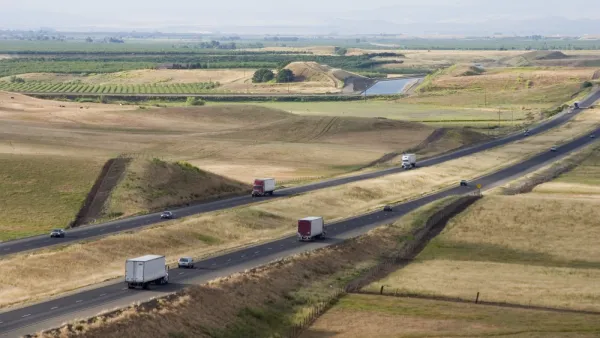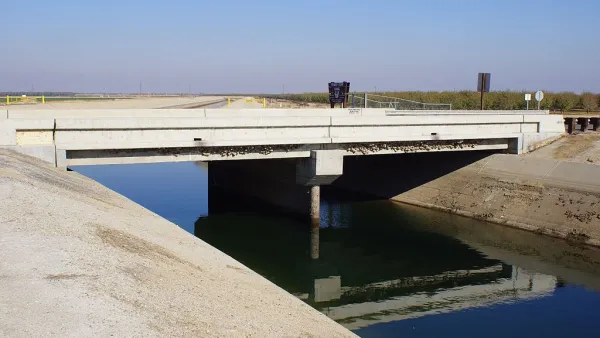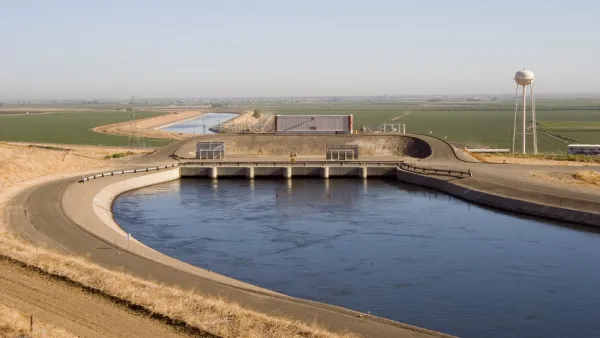California’s drought has the State Water Resources Control Board in "hyperdrive"—rushing to fill the gaps of a historic water-rights system, settle disputes over water use, and lay the groundwork for a sustainable future.
The board oversees California's intricate water-rights system, which is really an accumulation of three separate ones. It's based on seniority, so in dry periods, the claims of junior rights-holders are the first to be cut (or "curtailed.") But this drought is so severe that the board may have to curtail the rights of senior rights holders, too. And conditions on water rights—such as protections for wildlife—need to be revised, since they weren’t devised to accommodate “insanely dry” periods like this one.
Chair of the State Water Resources Control Board Felicia Marcus delved into the challenges of managing water during the drought with The Planning Report. The board does more than adjudicate rights—two of its core divisions are Water Quality and Drinking Water.
It also helps manage disputes over the Sacramento-San Joaquin River Delta. "It’s not just fish versus farmers—it’s farmers versus farmers," Marcus says. "We, along with the courts, are the umpires judging competing claims on water."
But Marcus has hope that the future brings local collaboration and stakeholder cooperation. She points to legislation from last year that requires local areas sharing a groundwater basin to jointly come up with a plan to maintain it. That law got the underlying philosophy about groundwater right, Marcus believes: "The goal should not be a top-down state regulatory program, but a framework for local action and success. We will do whatever it takes to help local areas take responsibility for what is, at heart, a community resource."
Overall, Marcus sees successful water policy as a result of players thinking beyond their own narrow interests:
"Breakthroughs in California water over the last few decades—whether it’s groundwater legislation, the Bay-Delta Accord I was privileged to work on in the ’90s, or the ’09 legislation I was also privileged to deal with—happened because players in different stakeholder groups looked across traditional divides... Solutions only come when people take action to connect with other people around a table, rather than standing in separate corners with their engineering, legal, or otherwise technical points of view."
FULL STORY: State Water Resources Board Wisely Navigates Challenges of Drought

Analysis: Cybertruck Fatality Rate Far Exceeds That of Ford Pinto
The Tesla Cybertruck was recalled seven times last year.

National Parks Layoffs Will Cause Communities to Lose Billions
Thousands of essential park workers were laid off this week, just before the busy spring break season.

Retro-silient?: America’s First “Eco-burb,” The Woodlands Turns 50
A master-planned community north of Houston offers lessons on green infrastructure and resilient design, but falls short of its founder’s lofty affordability and walkability goals.

Test News Post 1
This is a summary

Analysis: Cybertruck Fatality Rate Far Exceeds That of Ford Pinto
The Tesla Cybertruck was recalled seven times last year.

Test News Headline 46
Test for the image on the front page.
Urban Design for Planners 1: Software Tools
This six-course series explores essential urban design concepts using open source software and equips planners with the tools they need to participate fully in the urban design process.
Planning for Universal Design
Learn the tools for implementing Universal Design in planning regulations.
EMC Planning Group, Inc.
Planetizen
Planetizen
Mpact (formerly Rail~Volution)
Great Falls Development Authority, Inc.
HUDs Office of Policy Development and Research
NYU Wagner Graduate School of Public Service




























